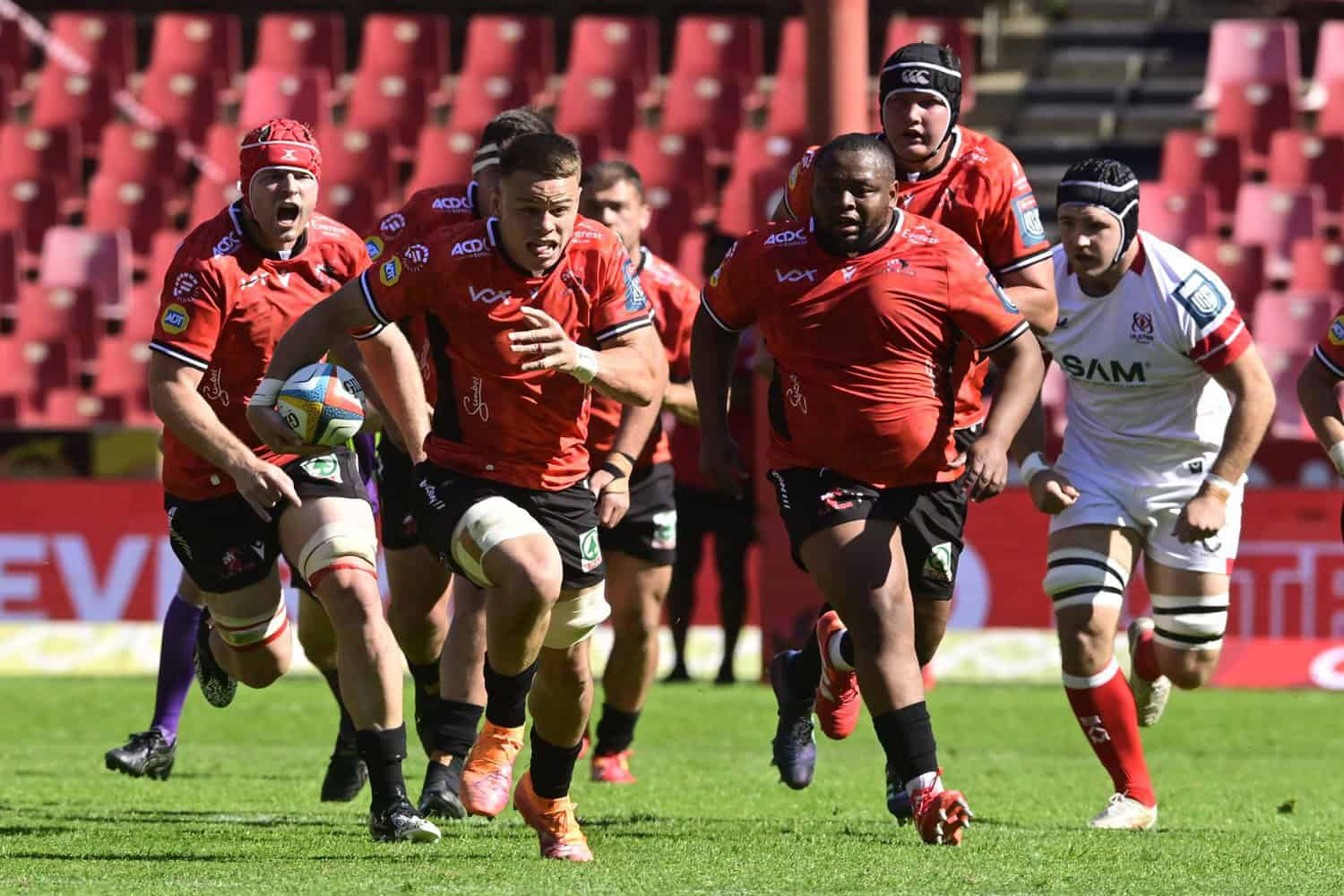There is a different hum around Ellis Park, the sound of a team rediscovering itself and believing again. At the heart of that turnaround sits the Lions performance in United Rugby Championship, a story that began with bruises on a grim European tour and has swung toward optimism thanks to two bonus point wins, measured words from coach Ivan van Rooyen and a captain in Francke Horn who is steering the mood as much as the ball. The break in play, often a momentum killer, arrives as a timely window for reflection and refinement.
From a grim tour to Ellis Park joy
The first notes of the Lions season were jarring. Three losses on tour, with only one log point, left them second bottom and searching for composure after defeats to Cardiff, Zebre and Benetton that drained confidence and rhythm. It was not just the results, it was the feeling that the team could not find the right gears.
Back home, the Scarlets match became the first rung on the ladder. An unconvincing 29-18 win, yet a vital bonus point victory that settled nerves and sparked belief for a team that needed tangible reward for their effort. That result, modest in spectacle, provided a platform for a bolder performance to come.
Ulster test reveals steel and clarity
Ulster arrived unbeaten, having already dispatched the Bulls in Belfast and a Springbok-laden Sharks side in Durban, and they carried the aura of a team in control. The Lions had to match accuracy with ambition, and they did more than that at altitude. They trailed 19-14 at the break, then poured on 35 points in a statement second half to close out a 49-31 triumph.
It was a 12-try thriller that showcased a team finding its cutting edge again. Conrad van Vuuren crossed twice, six other Lions scored, and Ulster suffered their first loss of the season, evidence that Ellis Park can still be a mountain for visiting sides to climb. The win lifted the Lions from 11th to eighth on the table, a leap that resonated as much in the psyche as on the standings.
Inside the Lions camp mindset and method
Ivan van Rooyen sounded both relieved and deliberate after Ulster, framing the November pause as an ally rather than a nuisance. The coach pointed to incremental improvements and the chance to sharpen them further, noting that many players had also carried Currie Cup minutes and would welcome a brief reset before the next block. The plan is a week off, then a return to training with eyes fixed on the Bulls at Loftus at the end of November.
“If I’m honest, I think this break is at a good time for us. To walk away now with where we are on the log, with the improvements we have made, and with the ability to keep on working on what we need to over the next month is great.”
There is also the crucial note on personnel. Van Rooyen says the Lions could potentially welcome one or two players back from injury during this period, another reason to treat the pause as a springboard rather than a speed bump. The balance between rest and preparation feels intentional and calm.
“We will also potentially have one or two guys back from injury that can bolster the squad as well. So although you would usually want to keep the momentum going from a win like this, it’s a long season, so we will make use of this rest and the time off to keep improving.”
Training has been a theme in van Rooyen’s view of the resurgence, and there is a conviction that what happens on the field now mirrors what has been building at Johannesburg practice sessions. Quick, physical, and competitive is the description, and against Ulster the Lions finally translated that template into points and control across 80 minutes.
“If you look at our training sessions it is really competitive and intense. It’s quick, it’s physical, and I think we showcased that a little bit against Ulster. So the next month is really important for us to prep well.”
Francke Horn and the tone of belief
Leadership is measured by what a captain says and how a group listens. Horn admitted it took resolve to shut out outside noise after the dismal tour, and that the group leaned on clarity, execution and patience. The Scarlets win did not satisfy, it steadied the hands for a bigger task.
“You obviously hear the noise from outside and you see the stuff that is said. It takes a lot of composure and mental strength to know that what you are doing is right, and that the positive outcome will come if you do your job and execute better.”
That sentiment carried into Ulster, where the Lions played with pace and intent after halftime. Horn called it a building performance, the sort that changes the dressing room temperature and underscores the work done during a tough fortnight. The captain is clear that confidence is rising, but so is the awareness that the ladder remains long.
“The guys were firing and played some really good rugby and I think this result is going to do us a world of good. Especially the confidence we will get out of it, and we will look to just keep building this season.”
The table, momentum and what comes next
The picture after the first block is tighter than it felt two weeks ago. The Bulls are sixth on 14 points, the Lions are eighth on 11 points, which sets up a high-stakes derby at Loftus after the internationals. It is the kind of fixture that tests belief and exposes detail, and the Lions know they must keep improving.
The November international window stretches to a month, then the calendar becomes crowded. The Lions will resume with the Bulls in Pretoria, turn toward the EPCR Challenge Cup in December, and juggle priorities with care. It is a demanding stretch, but there is order to the planning that matches the renewed energy on the field.
After Loftus the slate reads like a stress test. The Lions start their Challenge Cup at home against Benetton, then travel to England to face Newcastle Red Bulls, before flipping back to URC duty against the Stormers in Cape Town and then the Sharks at Ellis Park just after Christmas. It is a heavy run, yet the sense within the camp is that the break allows for a proper build.
Why the break feels like a blessing
Teams often fear a pause when wins finally arrive, yet here the timing seems perfect. The Lions can reinforce their competitive training blueprint, manage bodies, and integrate any returning players before the intensity picks up again. That approach aligns with van Rooyen’s measured messaging around rest and preparation, a blend that can amplify the current surge if handled with discipline.
Momentum in rugby is not just scoring sprees, it is repetition of good habits. The Lions have strung together a week of unconvincing progress and another of expressive rugby, and now they can lock in the pieces that worked. The aim is to carry a similar tempo from training to Loftus, then into a festive period that could define their season.
Keys to sustain the surge
- make training intensity the standard, not the exception,
- protect composure during tight spells, especially early after the break,
- fold returning players into settled combinations without losing cohesion,
- treat Loftus as a measuring stick and the Challenge Cup as a growth lane.
What the Ulster win tells us
Comebacks are not flukes when they spring from structure. Outscoring Ulster 35-12 after halftime signals conditioning, clarity and the confidence to keep playing when the game loosens. It also speaks to bench impact and in-game adjustment, although the Lions will be the first to say there is still a lot to fix.
The scoring spread, with Conrad van Vuuren’s double backed by six other try scorers, hints at balance across the park. It reduces predictability and keeps defenders honest, qualities that matter in derby rugby where margins are tight. The next step is to ensure that same variety travels, because Loftus tests character as much as it tests shape.
Context from around South Africa
Elsewhere, the Stormers continue to set the pace, sitting atop the URC after a five match winning streak capped by a 31-16 comeback at Benetton in Treviso. That marker matters for the Lions because it raises the domestic bar, a reminder that South African teams will jostle for position through December and January while managing EPCR commitments.
The Bulls head into the break frustrated after a 21-12 defeat to the Glasgow Warriors, a match that swung on a penalty try and a yellow card. The Sharks broke their own slump with a 29-19 win over the Scarlets in Durban, an important step for them even if their performance left room for growth. All of it forms the backdrop for a Lions side that has changed the narrative in the space of two weekends.
Final thought
For the Lions, the recent fortnight is not a destination, it is a signpost. The team clawed back from a bruising tour, found a foothold against the Scarlets, and then produced their most complete spell of rugby to dismantle an unbeaten Ulster side. The result shifted them to eighth, but more importantly it restored a sense of identity that had frayed overseas.
Van Rooyen’s voice carries steadiness, Horn’s carries conviction, and together they frame a team that understands what it is building toward. The break arrives, not as a pause to momentum, but as a laboratory for better habits and healthier bodies. If the Lions bottle the second half against Ulster and blend it with the control they are seeking each week, the next block could turn optimism into a sustained run.
That is where the emotion of this sport intersects with the grind. The Lions can feel the wind shifting, yet they know that belief only matters when it survives contact. Loftus will ask hard questions, the festive calendar will add pressure, and the URC table will keep moving. For the first time this season, the Lions look ready to move with it.






